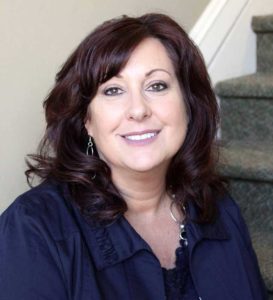Combining Academic and Real World Experience
“I want to do more than just teach the fundamentals of criminal justice in the classroom.”
 When it comes to educating her students, Keystone College Associate Professor of Criminal Justice Stacey Wyland has a definite game plan she has followed every semester. Her goal is always to combine classroom knowledge with real-world experience.
When it comes to educating her students, Keystone College Associate Professor of Criminal Justice Stacey Wyland has a definite game plan she has followed every semester. Her goal is always to combine classroom knowledge with real-world experience.
“Teaching the fundamentals of criminal justice in the classroom is certainly very important,” says Stacey. “But I want to do more than that. For criminal justice majors, it’s particularly important to get out of the classroom and into the community. The main idea is to experience the type of environment they will face in their everyday professional lives.”
The Inside-Out Prison Exchange Program
To that end, Stacey teaches a course that brings Keystone students into direct contact with inmates at the State Correctional Facility at Waymart. The Inside-Out Prison Exchange Program, originally developed at Temple University, enables students and inmates to engage in group discussions on a wide variety of topics ranging from at-risk youth to societal re-entry for prisoners.
“It’s an educational experience for both the students and inmates,” Stacey says. “They get the opportunity to learn about each other and to learn from each other. Sometimes, we all have pre-conceived stereotypes about anyone convicted of a crime. But when students have the opportunity to meet the inmates, they learn that each person and each situation is unique. That’s a lesson that I believe will benefit them for many years to come.”
“I’m fortunate that Keystone has given me the freedom to try new things and explore new approaches.”
A Book Club for the Homeless
Stacey also expanded her community outreach by starting a book club for the homeless with her Keystone colleague Dr. Deborah Belknap, assistant professor of criminal justice and psychology. Once a week, Stacey, Deb, and a group of Keystone students meet with a group of homeless individuals at the Community Intervention Center in Scranton to discuss their favorite poems and short stories.
The next step is to help start a library at the Center with a permanent collection of reading material. “We’re looking forward to getting more students involved with this project as we progress. This is yet another way for students to meet people they may never have the chance to encounter,” Stacey says.
Stacey credits the academic environment at Keystone for enabling her to think outside the box and create real-world experiences which benefit students and help prepare them for the future.
“I’m fortunate that Keystone has given me the freedom to try new things and explore new approaches. It’s really gratifying to meet former students who go on to become law enforcement officers, probation officers, or other criminal justice professionals and for them to say that I was able to contribute in some way to their success. It means a lot to know that I’ve been able to make a positive difference in their lives.”





